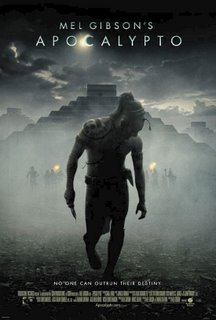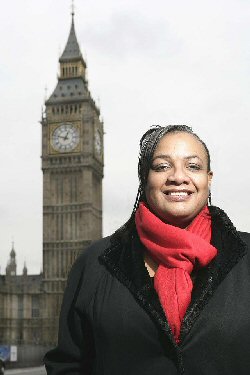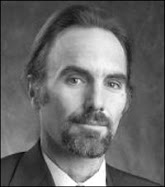 Hugo Strikes Out – For Now
Hugo Strikes Out – For Now
Hugo Chávez's U.N. rant revealed that his anti-Americanism is really about one thing: Hugo Chávez .
Hugo Chávez defines and empowers himself with his anti-Americanism – the foundations of which he laid during the Clinton administration’s soft-line approach toward him. Chávez knows less about America than he thinks, however. His controversial U.N. speech revealed some of the Venezuelan leader's weaknesses and contradictions. It also underscored the threat posed by his oil-rich regime.
By David Paulin
In Hugo Chávez’s Venezuela it’s a crime to “
insult” the president. The offense became part of the penal code in March and mandates prison terms of up to two and one-half years.
How fortunate for Venezuela’s president that no such laws exist in America, and that President Bush never fomented the kind of political violence and polarization here that Chávez has introduced into his country.
Otherwise, imagine one scenario that might have played out: Federal marshals escort Chávez to a detention facility for the “insult” President Bush suffers after Chávez brands him a “devil” while waving around a Noam Chomsky
book on America’s alleged malevolence. Across the country, meanwhile, gangs of Republican toughs shoot up and trash Venezuela’s Citgo outlets. Wielding baseball bats, others chase down U.N. delegates to avenge their applause and smirks over Chávez ’s rant to the U.N. General Assembly.
Ah, yes, wishful thinking, but there is a point here. In Venezuela, the left-wing populist has unleashed similar sorts of
political violence by demonizing political opponents and polarizing Venezuelans along class and political lines.
Clinton’s Chávez PolicyChávez pretended his anti-American rants in the U.N. and Harlem were about the “devil” Bush. In fact, Chávez's most outrageous conduct started during the Clinton administration. Its point man in Caracas, U.S. Ambassador
John Maisto, peddled a
soft-line approach on Chávez , viewing him as a late-blooming democratic reformer; no matter that the former Army lieutenant colonel, just six years earlier, orchestrated a bloody military coup and had a long history of radicalism.
A career diplomat with an academic bent, Maisto explained away Chávez’s anti-Americanism by saying, “Watch what Chávez does, not what he says.” The so-called “Maisto Doctrine” encapsulated Clinton-era wishful thinking about Chávez , according to
Paul Crespo, a military attaché in Caracas during Maisto’s tenure. Chávez , meanwhile, was a man of his word. He quickly
closed ranks with Cuba; sought
alliances with Middle Eastern dictators; and expressed solidarity with imprisoned Venezuela-born terrorist “
Carlos the Jackal.” In addition, he expressed veiled sympathy for Colombia’s Marxist narco-guerillas; it's also likely that he clandestinely provided them
material support.
It was not until Chávez denounced the U.S. invasion of Afghanistan as a "slaughter of innocents" that the Bush administration undertook a belated
post-9/11 reassessment of Chavez and soft-line "Maisto Doctorine" that astute observers had
harshly criticized.
Venezuela’s law protecting El Presidente from “insults” is one of many examples of how democratic safeguards and respect for
human rights and
press freedoms spiraled downward early into Chávez ’s nearly eight-year rule. Many of the abuses occurred under Maisto’s watch, and of course while “Monicagate” distracted the Clinton White House and Congress. In the last few years, Chávez has used the foundation he laid during those years to undertake a
huge arms build-up and
meddle in regional politics. At home, he has veered into
anti-Semitic rhetoric and harassment of Venezuela’s Jewish community. To some political scientists, the left-wing populist exemplifies a new form of democracy: “
elected autocrat.”
Before Chávez's New York rant, most reasonably informed Americans knew about his vaunted “social programs,” not to mention his frequent and outlandish accusations: Washington wanted to invade Venezuela, kill him, and had played a role in a failed coup against him. The funny thing about such unsupported allegations is that they often had a ring of credibility, thanks to how the mainstream media reported them – for the most part soberly written up and juxtaposed against vehement U.S. denials.
Chávez : Warts and allTo truly understand what the telegenic Chávez is all about, he must be seen up close, unedited, warts and all. Television news certainly has its shortcomings. But in respect to Chávez's U.N. rant, give it credit for showing that the Emperor had no clothes. Many Venezuelans figured that out soon after Chávez ’s landslide presidential victory in December, 1998.
Months into Chávez's term, many Venezuelans got their fill of him during the regular television appearances he started making. In unscripted monologues similar to his U.N. rant, Chávez rambled on for hours, sprinkling his running commentary with personal anecdotes and baseball metaphors; and he regularly demonized political opponents.
Venezuelans eventually complained they were missing their favorite “telenovelas.”
After his New York performance, Americans at long last got a clear picture of Chávez ’s irrational and toxic anti-Americanism. They also sensed his narcissism -- the way adoring U.N. delegates obviously nourished and energized his ego.
Now, all those outraged Americans boycotting Citgo outlets know what Venezuelans have been suffering. Most Venezuelans reject Chávez ’s anti-Americanism and confrontational foreign policy.
Broken PromisesNearly eight years ago, Chávez , a political outsider, won a landslide election by pledging to end rampant corruption and declining living standards. Voters, however, saw what they wanted to see in Chávez, who promised different things to different constituencies. To slum dwellers he was a rabble-rousing populist offering paternalistic handouts. Middle-class audiences saw him as a reasonable reformer. To them Chávez spoke about a Venezuelan version of a “Third Way” between socialism and capitalism.
Under Chávez , however,
corruption,
crime, and
poverty all have worsened, according to the most credible accounts and statistics. And that’s despite record oil prices that have traditionally lifted the oil-dependent economy. The majority of 25 million Venezuelans are poor.
Chávez nevertheless wins elections and referendums with
slim majorities – thanks to his populist programs, soaring oil prices, and fact that he controls the levers of power under a rewritten constitution. Political opponents settle on some choice descriptions of him: vulgar, irrational, a bully, a charming narcissist.
Rejects American Disaster ReliefOne year after his election, Chávez demonstrated his willingness to put prickly nationalism and anti-Americanism above the needs of ordinary Venezuelans. In December 1999, he brusquely turned away U.S. Navy vessels steaming toward Venezuela to render assistance to victims of one of the worst natural disasters in Latin America's recent history. Heavy rains had triggered massive mudslides in and around Caracas, the capital, killing tens of thousands of people, leaving untold numbers homeless, and burying roads and villages.
A top Venezuelan military official had signed off on a major U.S. relief effort, prompting a Navy ship to start steaming toward Venezuela with hundreds of military engineers and heavy equipment. But Chávez , during a shoot-from-the-hip news conference, startled U.S. officials by
rejecting the aid.
Chávez officials, meanwhile, also downplayed or ignored search and rescue operations being undertaken by U.S. Army Blackhawk helicopters that arrived shortly after the disaster. I described this early manifestation of Chávez's anti-Americanism for
The Washington Times, while a foreign correspondent based in Caracas.
The thin-skinned Chávez and other officials also eagerly sought out malevolence in any U.S. action or comment. Then they would bluster on about Venezuela being a “sovereign” country and how bilateral relations should be guided by “mutual respect.”
Chávez , in contrast, welcomed suggestions and help from his friend and mentor, Cuban dictator Fidel Castro.
Cuba’s security services and advisors began playing significant roles in Chávez ’s government, which must have heartened top Chávez officials such as
Alí Rodríguez , Venezuela’s oil minister, and later head of the state oil company, and then foreign minister. A lawyer and former leftist Congressman with an intellectual demeanor, Rodríguez fought in a failed 1960's Cuba-backed insurgency against Venezuela’s government, then a democratic beacon in Latin America.
Oil DiplomacyTo the
international left, however, Chávez can do no wrong. The day after his U.N. speech, for instance, Chávez got a
hero’s welcome at a Baptist church he visited with activist-actor Danny Glover. The event in Harlem focused on yet another initiative in which Venezuela is selling
discounted home-heating oil to low-income people in the Northeast and Western Europe.
There is a huge irony in these initiatives. In his first presidential campaign, Chávez promised to put Venezuela’s oil wealth to work for poor Venezuelans, contending previous governments had failed to do so. He has indeed instituted a number of social programs, but poverty experts contend the patchwork of efforts
fails to qualify as a serious poverty-reduction program. They nevertheless provide Chávez with plenty of political mileage.
In addition, Chávez has approved
sweetheart deals to oil customers in Latin America and the Caribbean – all calculated to give Venezuela influence in the region. Cuba is the most outrageous example; in a
barter arrangement it provides Venezuela with doctors and athletic trainers in exchange for oil.
Chávez's Harlem cheerleaders applaud such initiatives, believing they
shame corrupt Western capitalism. They overlook the fact that Chávez is giving away the patrimony of his own impoverished country. Ultimately, these programs reveal Chávez to be as venal as previous Venezuelan leaders.
Presumably, Chávez was riding high over how U.N. delegates applauded him, followed by his big Harlem welcome. What came next surely surprised him: consumer disgust with Citgo, followed by
7-Eleven’s announcement that it was dumping the brand (citing Chávez ’s past conduct as a factor in what nevertheless was mostly a marketing decision).
And Chávez must have been stung by those unusual public rebukes by two influential Bush-hating Democrats: Charles Rangel of New York and Nancy Pelosi of San Francisco. Chávez was an “everyday thug,” Pelosi fumed. Surely Chávez was taken aback. After all, didn’t his comments echo the talking points of many Bush-hating Democrats – not to mention the great intellectual Noam Chomsky?
One of Chávez’s weaknesses is that he moves by all accounts in an insular world of fellow America haters, both in Venezuela and on his frequent road trips. As an elected autocrat, moreover, he faces far fewer checks and balances, nor vexing issues such as accountability (to the degree that this concept is truly understood in Latin America). So he can think and behave as he wants.
Chávez’s hubris may have hurt him, too. His amazing powers to read and persuade audiences have never let him down in the past.
In 1992, for instance, Chávez convinced a group of soldiers to join him in a bloody, disorganized, and failed military coup (although Chávez, to be sure, was apparently never in the thick of the fighting in which scores of civilians and soldiers died).
Widely condemned, the coup failed to inspire a civilian uprising or wider rebellion among the military. Chávez spent two years in jail. In winning the presidency, he convinced Venezuelans that he had traded the ballet for the bullet.
One thing the mainstream media oversimplifies about Chávez is to call him a hero to the poor. True, he draws most of his support from the poor, but not all of the poor support him. Moreover, this overlooks the fact that many middle class and even wealthy Venezuelans voted for him in 1998; they, too, were fed up with the nation’s two mainstream political parties, which were widely blamed for ruling irresponsibly and in their own self-interest.
Indeed, I meet a number of well-to-do, intelligent, and decent Venezuelans who saw Chávez as a reformer who would restore pride to Venezuela. During exit poll interviews I did in the wealthy La Floresta section of Caracas, I was surprised that most voters said they'd voted for Chavez. Like poor Venezuelans, they wanted sweeping changes. Ambassador Maisto, to be sure, wasn’t the only educated person who got suckered.
A handful of wealthy Venezuelans, of course, has remained on Chávez’s bandwagon, engaging in the sort of corruption that traditionally benefited politically connected business people who enjoyed no-bid government contracts and sweetheart deals. Most, however, quickly saw Chávez for the irresponsible and dangerous demagogue that he is.
Now Americans have seen Chávez for what he is, and they are registering their opinions by passing up Citgo outlets.
Good riddance.








